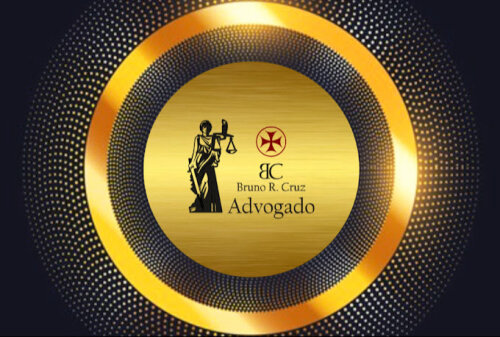Best Child Custody Lawyers in Gondomar
Share your needs with us, get contacted by law firms.
Free. Takes 2 min.
Free Guide to Hiring a Family Lawyer
List of the best lawyers in Gondomar, Portugal
About Child Custody Law in Gondomar, Portugal
Child custody, known as “regulação das responsabilidades parentais” in Portugal, refers to the legal arrangements made for children when their parents separate or divorce. In Gondomar, as in the rest of Portugal, the best interests of the child are always the primary consideration in any custody case. Child custody decisions include where the child will live, who will make important decisions regarding the child’s upbringing, and how parental responsibilities will be shared between the parents.
Why You May Need a Lawyer
There are several situations where seeking the guidance of a legal professional for child custody matters is highly recommended. These include:
- Disagreements with the other parent regarding living arrangements, visitation rights, or educational decisions.
- Concerns about the safety or wellbeing of the child while in the care of the other parent.
- Relocation or plans to move out of Gondomar that could affect existing custody arrangements.
- Cases involving international elements, such as one parent living abroad.
- Situations where urgent protective measures are needed, such as cases of abuse or neglect.
- Complex cases that may require representation in court, such as when one parent wishes to change established custody agreements.
A lawyer can help ensure your rights and your child’s best interests are protected throughout the legal process.
Local Laws Overview
In Portugal, including in Gondomar, child custody law is guided by the Civil Code and is generally managed through local Family and Juvenile Courts. Key aspects of child custody laws include:
- Joint Parental Responsibility: Portuguese law favors shared parental responsibility, meaning both parents retain significant rights and duties unless it is clearly not in the child’s best interests.
- Types of Custody: There are two main forms - joint custody (custódia conjunta) and sole custody (custódia exclusiva). Sole custody is usually only granted if joint custody is harmful to the child.
- Visitation Rights: The non-custodial parent is usually entitled to regular contact, which the court will formalize if parents cannot agree.
- Child’s Opinion: Depending on their age and maturity, the child’s preferences may be considered by the courts.
- Modification of Arrangements: Parenting plans and custody decisions can be revisited if circumstances change significantly or if it benefits the child.
Legal proceedings typically begin with an attempt at mediation, but can proceed to court if parents cannot reach an agreement.
Frequently Asked Questions
What is the difference between joint and sole custody?
Joint custody means both parents share responsibilities and decisions relating to the child. Sole custody means only one parent has the main responsibility and decision-making authority.
How is custody decided in Gondomar’s courts?
The court’s primary concern is the best interest of the child. Factors like the child’s needs, the capacity of each parent to provide care, and the child’s opinion (if mature enough) are considered.
Can custody arrangements be changed after they are set?
Yes, custody arrangements can be modified if there are significant changes in circumstances or if it is shown that a change would benefit the child.
What happens if parents reach an agreement outside of court?
If parents agree on a custody arrangement, they can submit it to the court for approval. The court will still review the agreement to ensure it aligns with the child’s best interests.
How are visitation rights determined?
If parents cannot agree on visitation, the court sets a schedule that allows the child regular contact with the non-custodial parent, unless this would be harmful to the child.
Do grandparents or other relatives have visitation rights?
In some cases, grandparents or other close relatives may seek visitation rights if it is in the child’s best interests.
Is mediation required before going to court?
Yes, mediation is encouraged as a first step to help parents reach an agreement amicably before any court proceedings begin.
What if there are concerns about abuse or danger?
Urgent measures for child protection can be requested from the court, and authorities such as Comissão de Proteção de Crianças e Jovens (CPCJ) may be involved.
Can a parent move to another city or country with the child?
Relocation affecting custody must be approved by the other parent or the court. The child’s best interests and existing custody arrangements are considered before permission is granted.
Do I need a lawyer for child custody proceedings?
While not legally required in all cases, having a lawyer is highly recommended, especially if the situation is complex or disputed.
Additional Resources
If you need more information or assistance, consider reaching out to the following resources:
- Local Family and Juvenile Courts (Tribunal de Família e Menores) in Gondomar for official procedures.
- Comissão de Proteção de Crianças e Jovens (CPCJ) - an organization tasked with protecting children’s rights and welfare.
- Portuguese Bar Association (Ordem dos Advogados) for finding a qualified family law attorney.
- Social Security (Segurança Social) for information on family benefits and support.
- Mediation centers (Centros de Mediação Familiar) for help in reaching an agreement outside of court.
Next Steps
If you are facing a child custody issue in Gondomar, it is important to act promptly to protect your rights and your child’s welfare:
- Gather all relevant documentation, such as birth certificates, proof of residence, and any prior court decisions.
- Contact a qualified lawyer with experience in family law in Gondomar to discuss your situation and potential strategies.
- Attempt to resolve the matter amicably and consider mediation before resorting to court proceedings.
- File the necessary legal paperwork with the local court if an agreement cannot be reached or if urgent court intervention is needed.
- Stay informed throughout the process and make decisions based on the best interests of your child.
Professional legal guidance can provide clarity, protect your rights, and help secure the best possible outcome for you and your child in any custody matter.
Lawzana helps you find the best lawyers and law firms in Gondomar through a curated and pre-screened list of qualified legal professionals. Our platform offers rankings and detailed profiles of attorneys and law firms, allowing you to compare based on practice areas, including Child Custody, experience, and client feedback.
Each profile includes a description of the firm's areas of practice, client reviews, team members and partners, year of establishment, spoken languages, office locations, contact information, social media presence, and any published articles or resources. Most firms on our platform speak English and are experienced in both local and international legal matters.
Get a quote from top-rated law firms in Gondomar, Portugal — quickly, securely, and without unnecessary hassle.
Disclaimer:
The information provided on this page is for general informational purposes only and does not constitute legal advice. While we strive to ensure the accuracy and relevance of the content, legal information may change over time, and interpretations of the law can vary. You should always consult with a qualified legal professional for advice specific to your situation.
We disclaim all liability for actions taken or not taken based on the content of this page. If you believe any information is incorrect or outdated, please contact us, and we will review and update it where appropriate.









